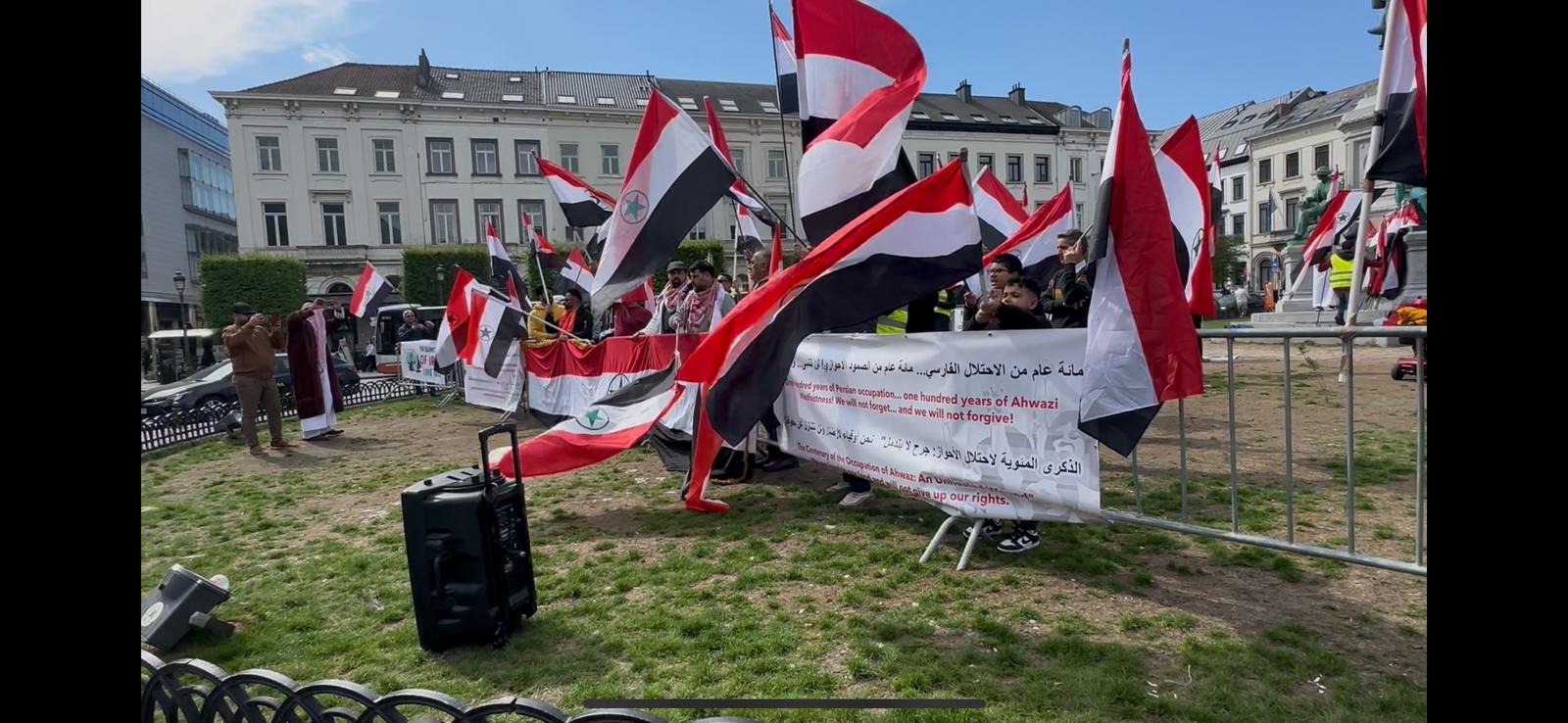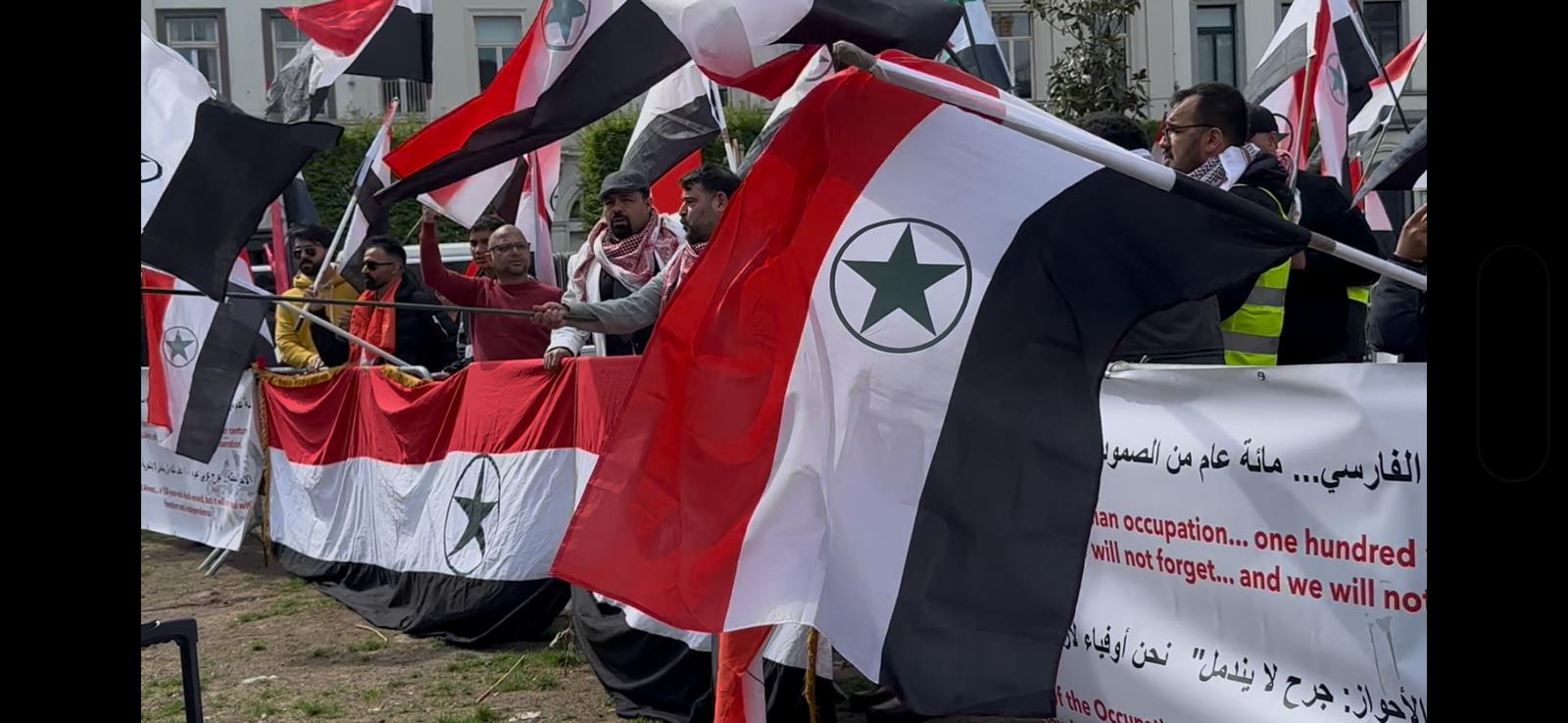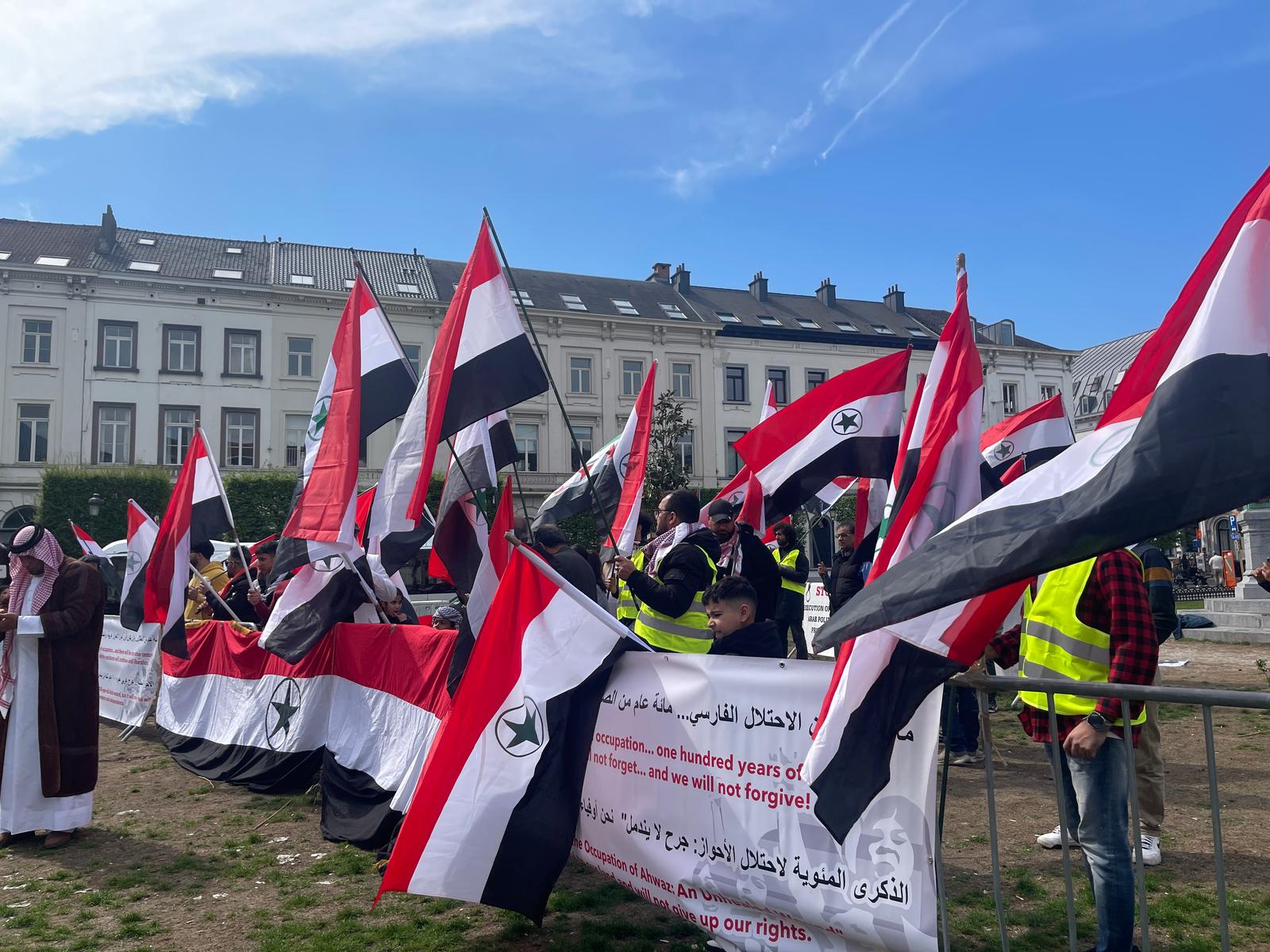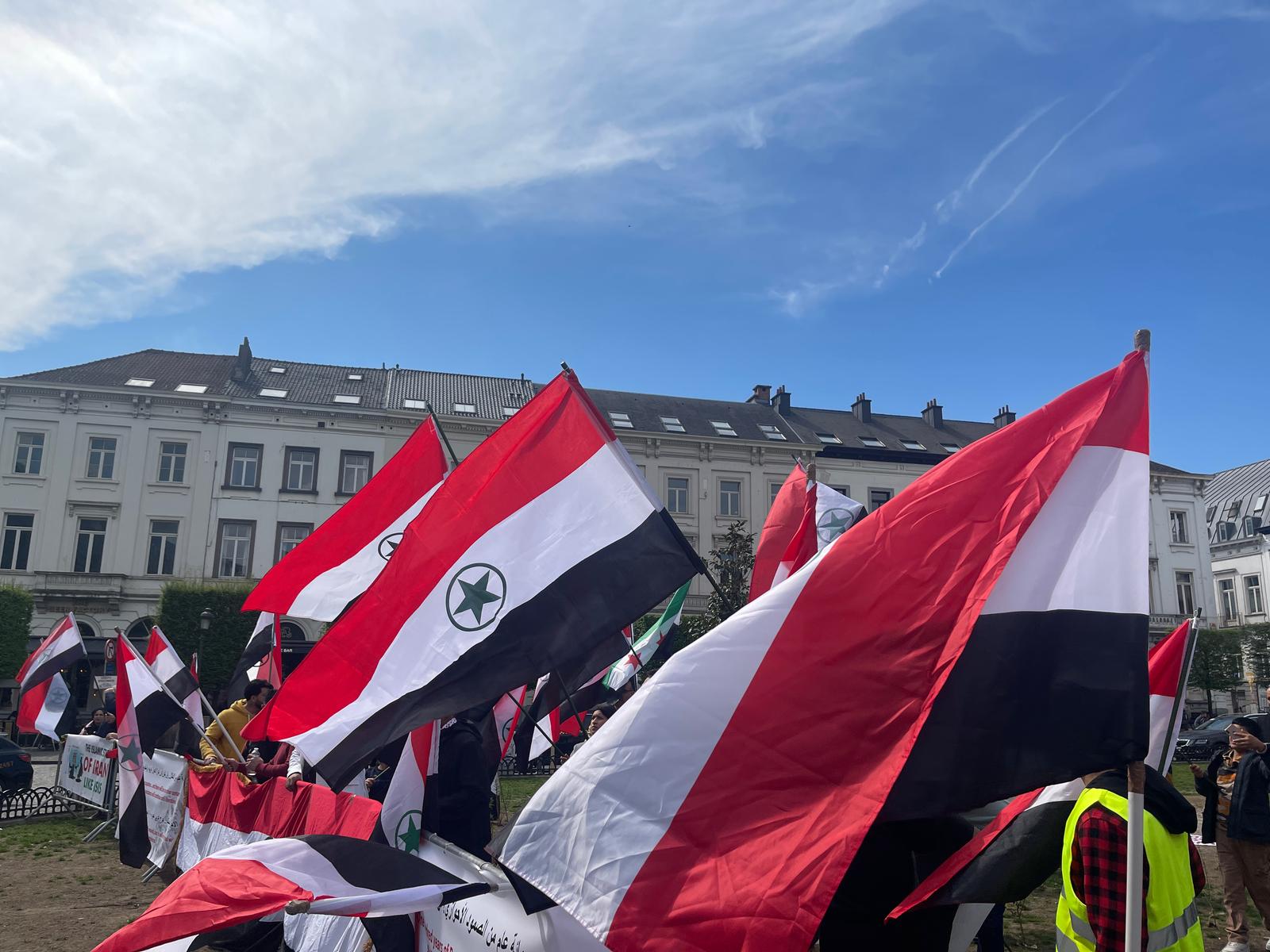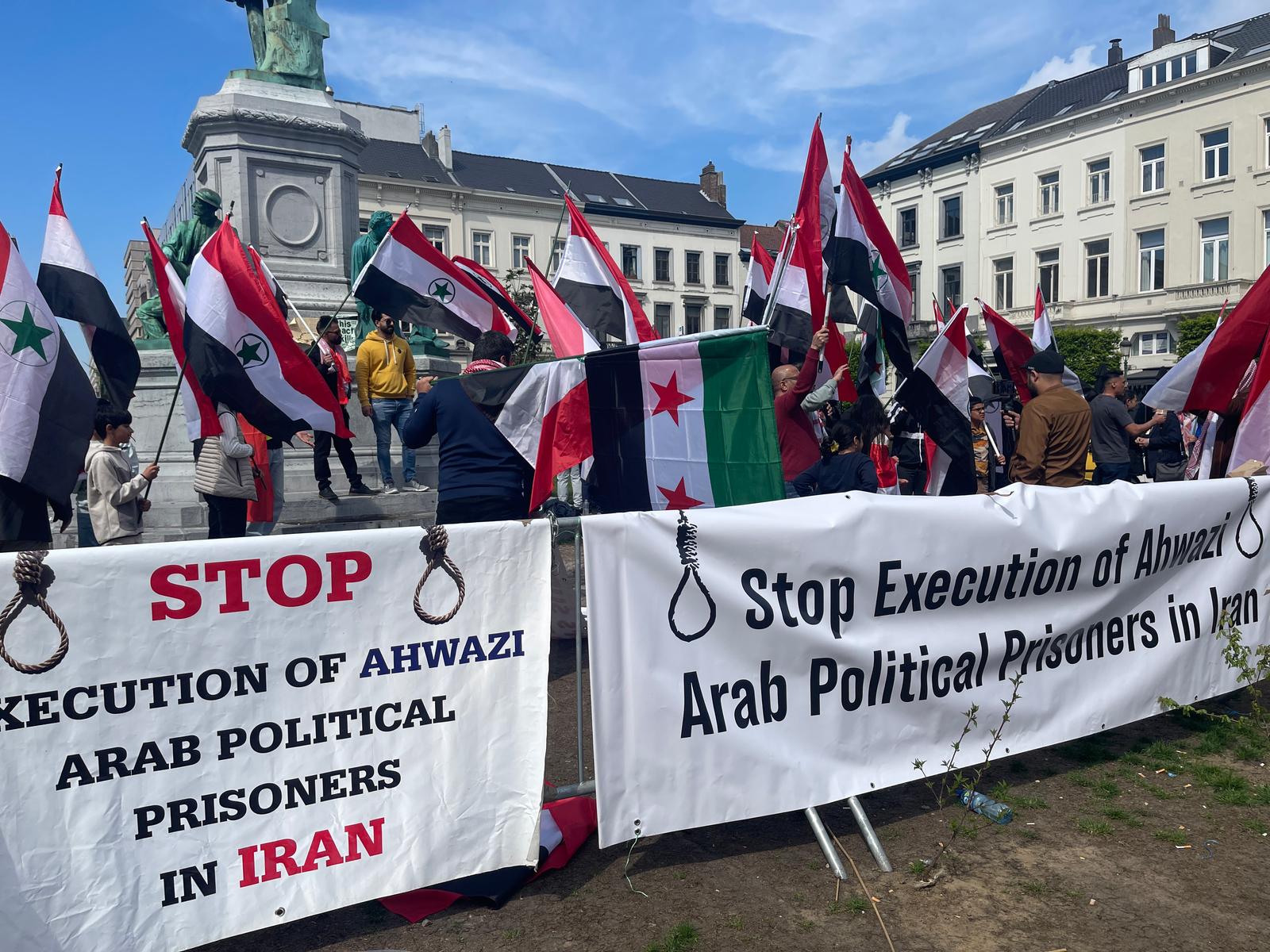Brussels, April 18 — With the 100th anniversary of Iran’s occupation of Ahwaz only two days away, hundreds of Ahwazi Arabs gathered outside the European Parliament on Friday in a powerful protest demanding an end to what the activists call a century of “erasure, execution, and environmental devastation.”
Marking a full century since the annexation of their homeland in what’s now south and southwest Iran on April 20, 1925, Ahwazi exiles from across Europe, North America, and Australia rallied in defiance of their Iranian oppressors —calling for justice, dignity, and international action. Their message was urgent: the Ahwazi people cannot afford another hundred years of silence.
Syria Steps Up: “Now It’s Our Turn”
On the same day, in a striking and heartwarming gesture of inter-Arab solidarity, Syrian activists gathered in Damascus to express solidarity with Ahwaz, with activist Mohammed Shazar announcing the opening of an office in Damascus dedicated to raising awareness about the Ahwazi cause. In a video posted to social media, Shazar recalled the steadfast support of the Ahwazi people during the Syrian revolution—despite the repression they themselves faced.
“During the years of the Syrian revolution, Ahwazis stood with Syrians,” he said. “They wrote about our suffering, supported us, and never gave up on us—even though they lived under the boot of the same regime. Now it’s our turn to stand with them.” Shazar called on Arab countries to break their silence and rally behind the Ahwazi people, whose plight has long been overshadowed by larger geopolitical crises.
“Iran Wants Ahwaz’ Oil, Not the Ahwazi People”
For 100 years, Ahwazi Arabs have been subjected to systemic marginalisation by successive Iranian regimes—banned from teaching their language, stripped of their land, and pushed to the fringes of the oil-rich economy that sustains the state. Protesters say Tehran’s policies amount to a slow-burning campaign of ethnic cleansing disguised as development. “They’ve renamed our cities, stolen our water, and replaced our people,” said one protester. “They want the oil, not the people who live on the land it’s under.”
Executions, Exile, and Environmental Warfare
Successive Iranian rulers, both under the Shah and under the current regime, have imposed a brutal securtised policies on the region. In April every year, Ahwazi activists in the homeland and worldwide diaspora hold demonstrations, vigils, and seminars to mark the anniversary of the occupation and theft of their lands.
Ahwaz has some of the most notorious prisons in Iran, a state renowned for torture and extra-judicial killings. Secret security facilities are deployed to extract fabricated confessions. The majority of Ahwazi Arab political prisoners are incarcerated only for demanding their basic cultural, linguistic and civil and human rights; in response, they are subjected to summary trials in secret revolutionary courts, often lasting less than 5 minutes and without access to defence lawyers. The death penalty usually follows.
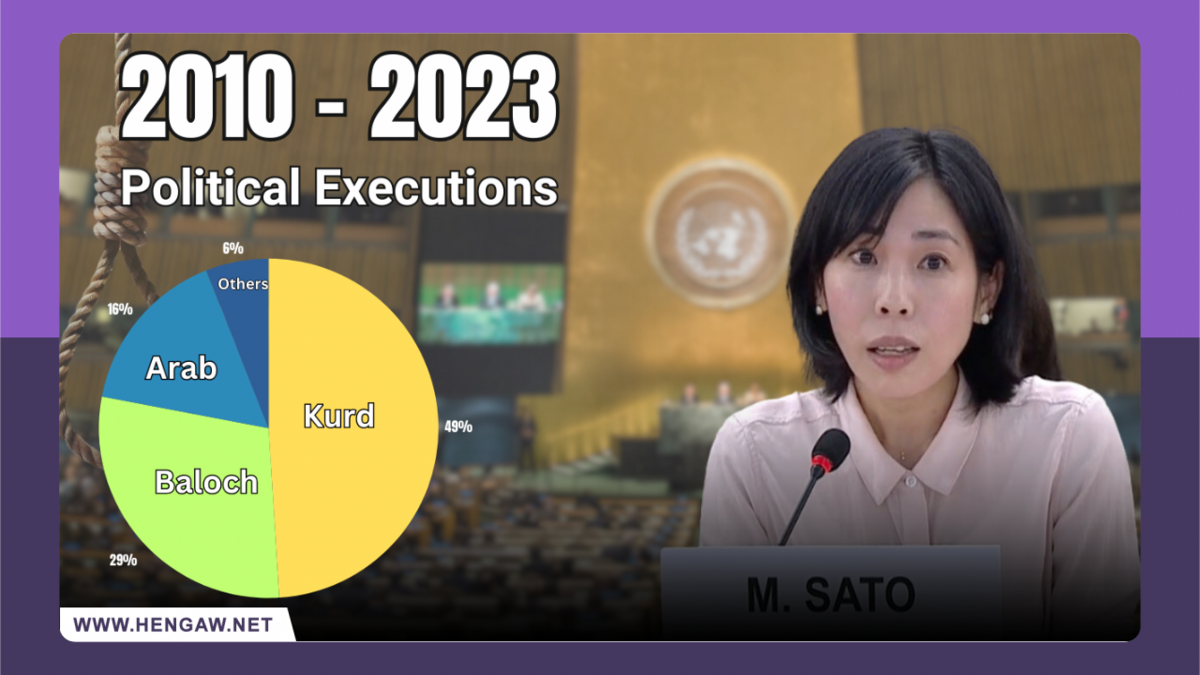
Mai Sato, UN Special Rapporteur on human rights in Iran, reported in March 20205 that from 2010 to 2023, Ahwazis were among the most heavily targeted groups for execution in Iran. Year after year, scores are arrested, tortured, and coerced into televised confessions—often aired before trials even begin. Such practices violate Iran’s obligations under international law, including the right to a fair trial and the presumption of innocence.
Meanwhile, state-led projects such as massive river diversions, sugar cane mega-farms, and heavy industrial activity have devastated the environment and forced thousands into deeper poverty and displacement.
Countdown to a Century
Protesters in Brussels emphasised that the 100-year milestone is more than symbolic—it’s a turning point. With increasing land confiscation, arrests, executions, and environmental collapse, activists say the Iranian regime is accelerating its effort to eradicate Ahwazi identity altogether. “The international community has looked away for too long,” said one organiser. “Every moment of silence is a green light for more suffering. We’re here to say: the world must act—now.” As the centenary of the 1925 occupation falls this Sunday, April 20, the Ahwazi diaspora is urging global institutions and civil society to recognise their struggle—not just as a human rights crisis, but as a litmus test of moral clarity.

